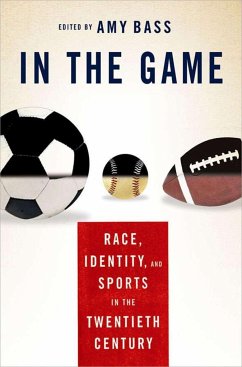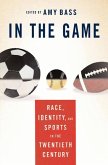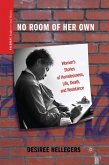Talking about race and sports almost always leads to trouble. Rush Limbaugh's stint as an NFL commentator came to an abrupt end when he made some off-handed comments about the Philadelphia Eagles' black quarterback, Donovan McNabb. Ask a simple question along these lines - 'Why do African Americans dominate the NBA?' - and watch the sparks fly. It is precisely this flashpoint that the contributors to this volume seek to explore. Professional and amateur sports wield a tremendous amount of cultural power in the United States and around the world, and racial, ethnic, and national identities are often played out through them. In the Game collects essays by top thinkers on race that survey this treacherous terrain. They engage fascinating topics like race and cricket in the West Indies, how black culture shaped the NFL in the 1970s, the famed black-on-white Cooney/Holmes boxing bout, and American Indian mascots for sports teams.
"Hard-hitting and well-researched, Amy Bass has put together a book that peels back the layers and looks inside the sports world we love." - Dan Shaughnessy, author, Reversing the Curse.
"This wonderful collection elevates the discussion of race, racism and sport. Incisive, geographically ranging, and richly historical, the essays gathered here are also luminous, passionate, and fun to read. For those with a love of the game, the pleasures of the text await. For those with critical and scholarly interests in race, culture and politics, this fine volume shows why the terrain of sport should not be ignored." - Nikhil Pal Singh, author, Black is a Country: Race and the Unfinished Struggle for Democracy
"Amy Bass has produced a focused and coherent anthology which challenges the empirical, theoretical, and political protocols that presently dominate sport oriented research on race and racial difference. The essays in this book offer convincingly argued and beautifully written accounts that expose new and important lines of inquiry. The broad interdisciplinarity of In the Game makes it a significant contribution to various intellectual domains, including American studies, ethnic and race studies, history, and the sociology of culture. Sport, as a social and historical phenomenon, has long threatened to become incorporated into the academic mainstream; the broad based relevance and incisiveness of In the Game will, no doubt, assist in the realization of thislong overdue recognition. An important book, at an important time." - David L. Andrews, Department of Kinesiology, University of Maryland, College Park
"This wonderful collection elevates the discussion of race, racism and sport. Incisive, geographically ranging, and richly historical, the essays gathered here are also luminous, passionate, and fun to read. For those with a love of the game, the pleasures of the text await. For those with critical and scholarly interests in race, culture and politics, this fine volume shows why the terrain of sport should not be ignored." - Nikhil Pal Singh, author, Black is a Country: Race and the Unfinished Struggle for Democracy
"Amy Bass has produced a focused and coherent anthology which challenges the empirical, theoretical, and political protocols that presently dominate sport oriented research on race and racial difference. The essays in this book offer convincingly argued and beautifully written accounts that expose new and important lines of inquiry. The broad interdisciplinarity of In the Game makes it a significant contribution to various intellectual domains, including American studies, ethnic and race studies, history, and the sociology of culture. Sport, as a social and historical phenomenon, has long threatened to become incorporated into the academic mainstream; the broad based relevance and incisiveness of In the Game will, no doubt, assist in the realization of thislong overdue recognition. An important book, at an important time." - David L. Andrews, Department of Kinesiology, University of Maryland, College Park








